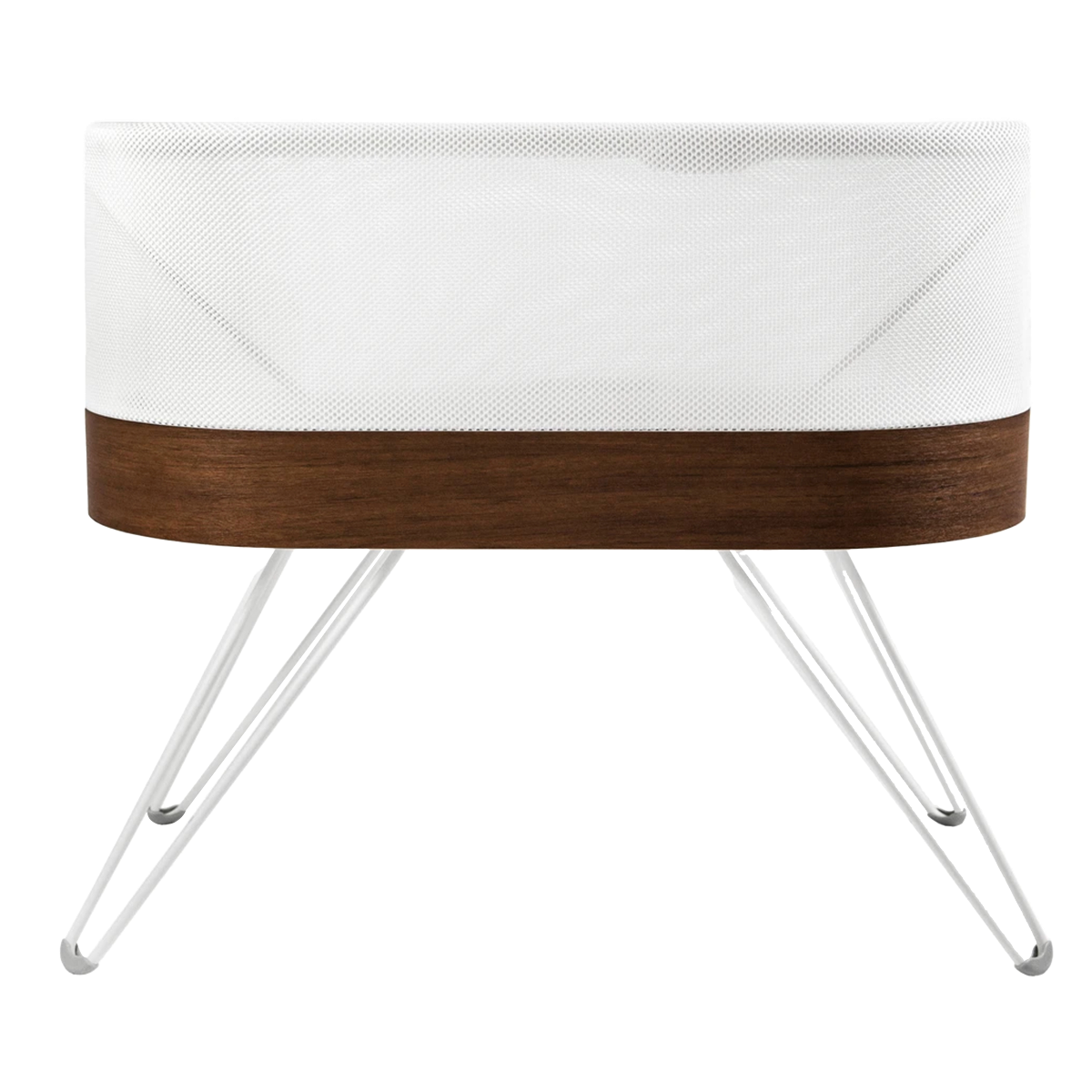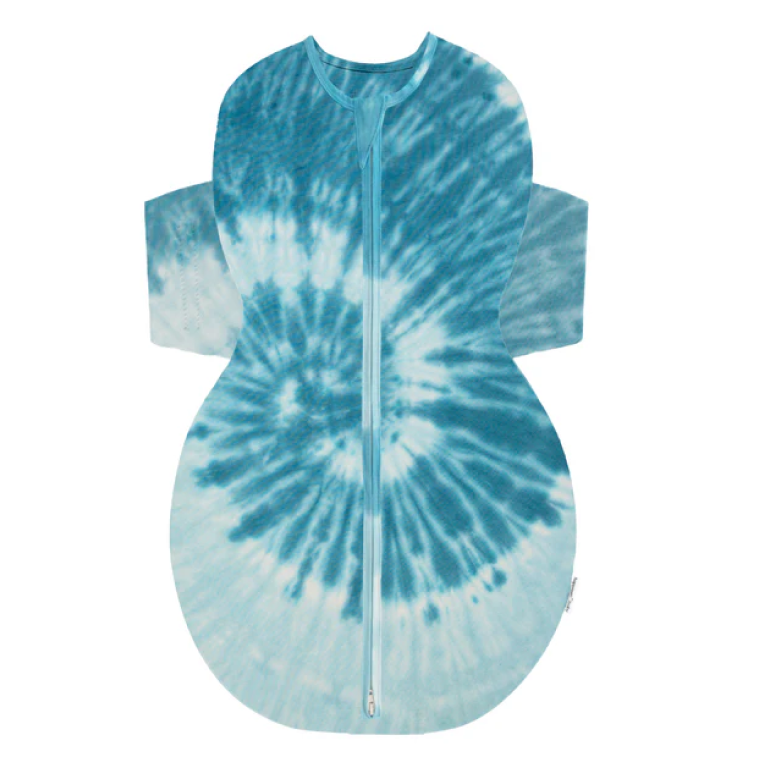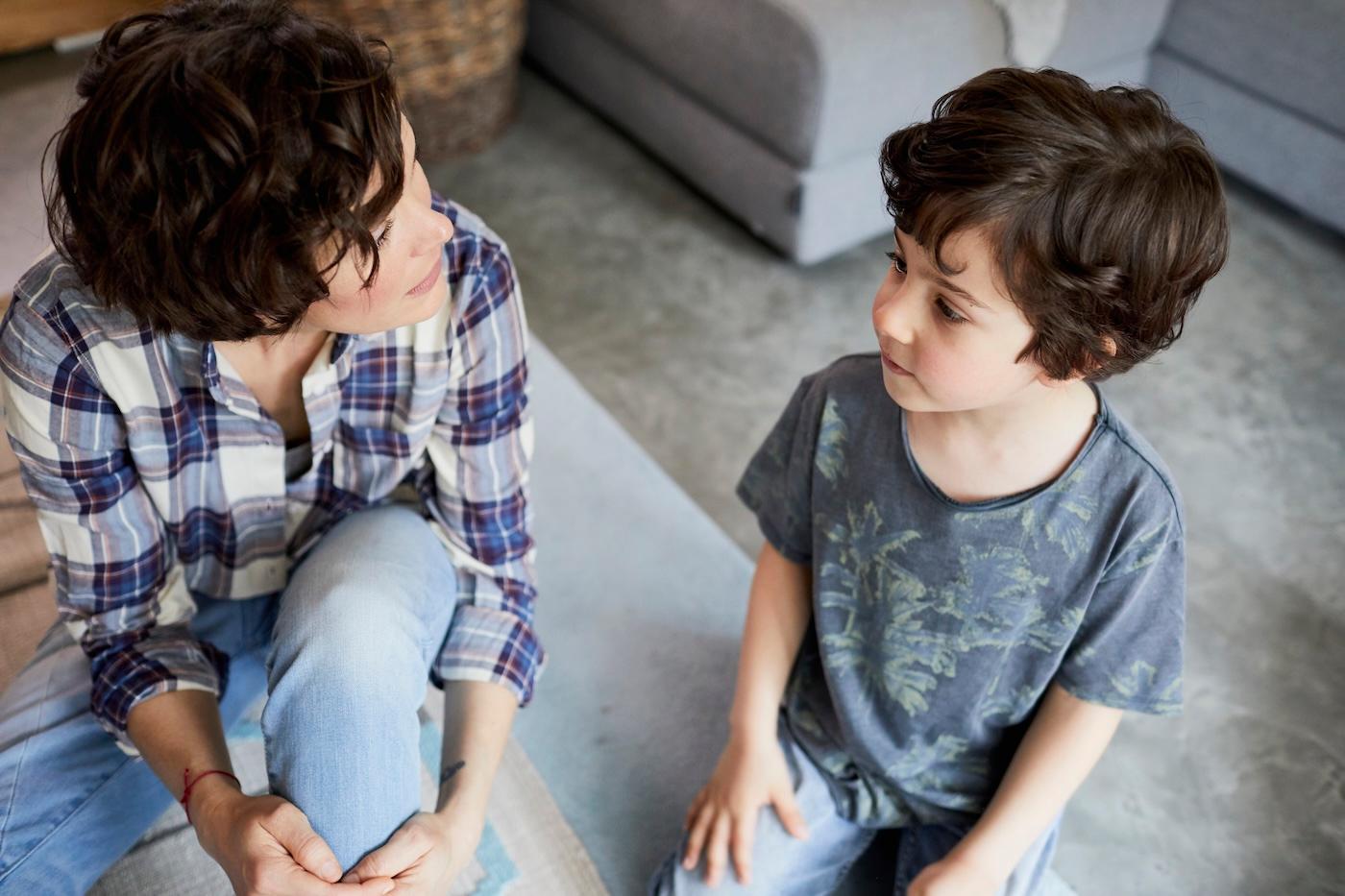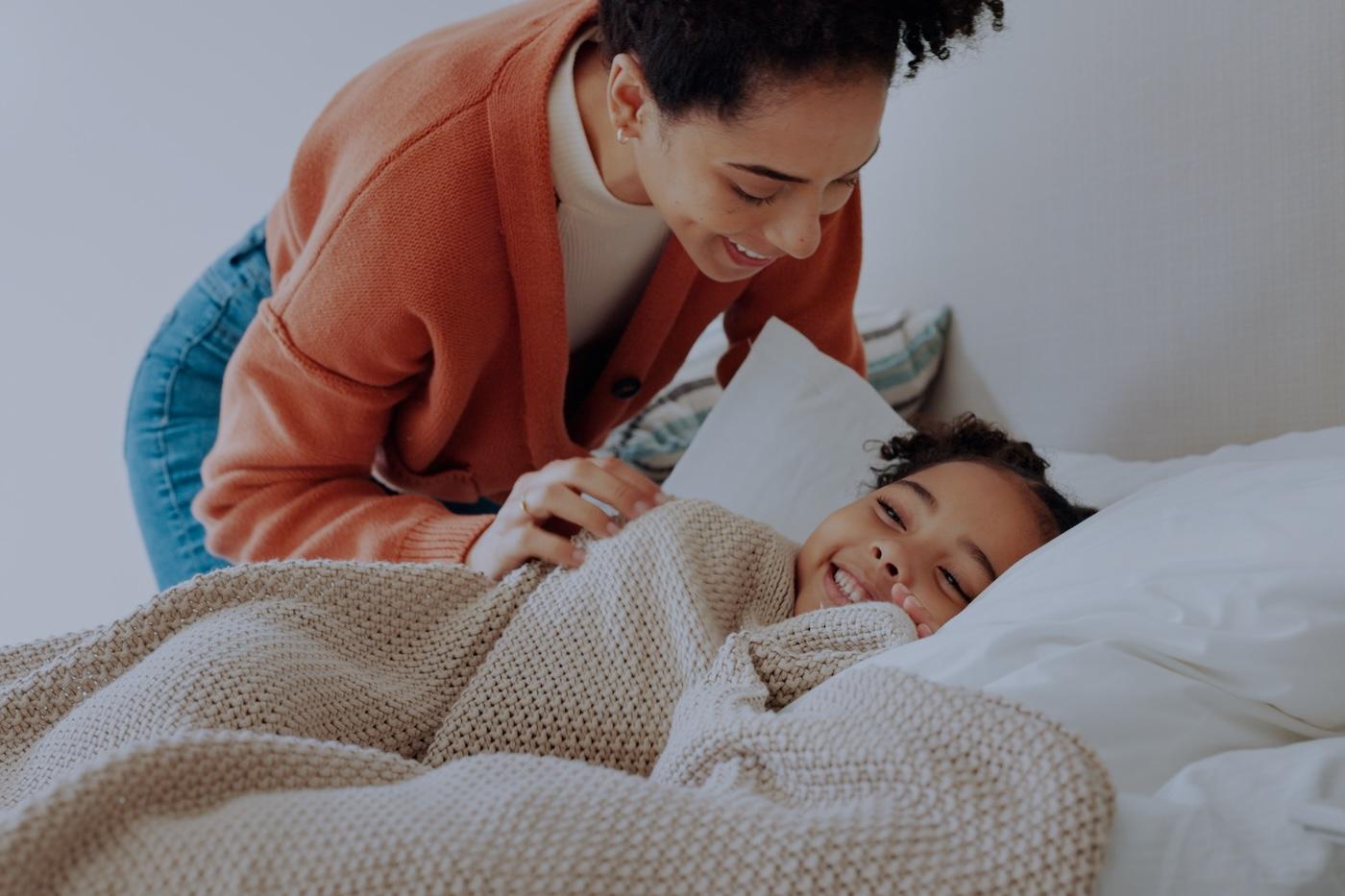TODDLER
Your Doctor’s Visit Survival Guide
Here’s how to make sure every checkup goes smoothly!

Written by
Happiest Baby Staff
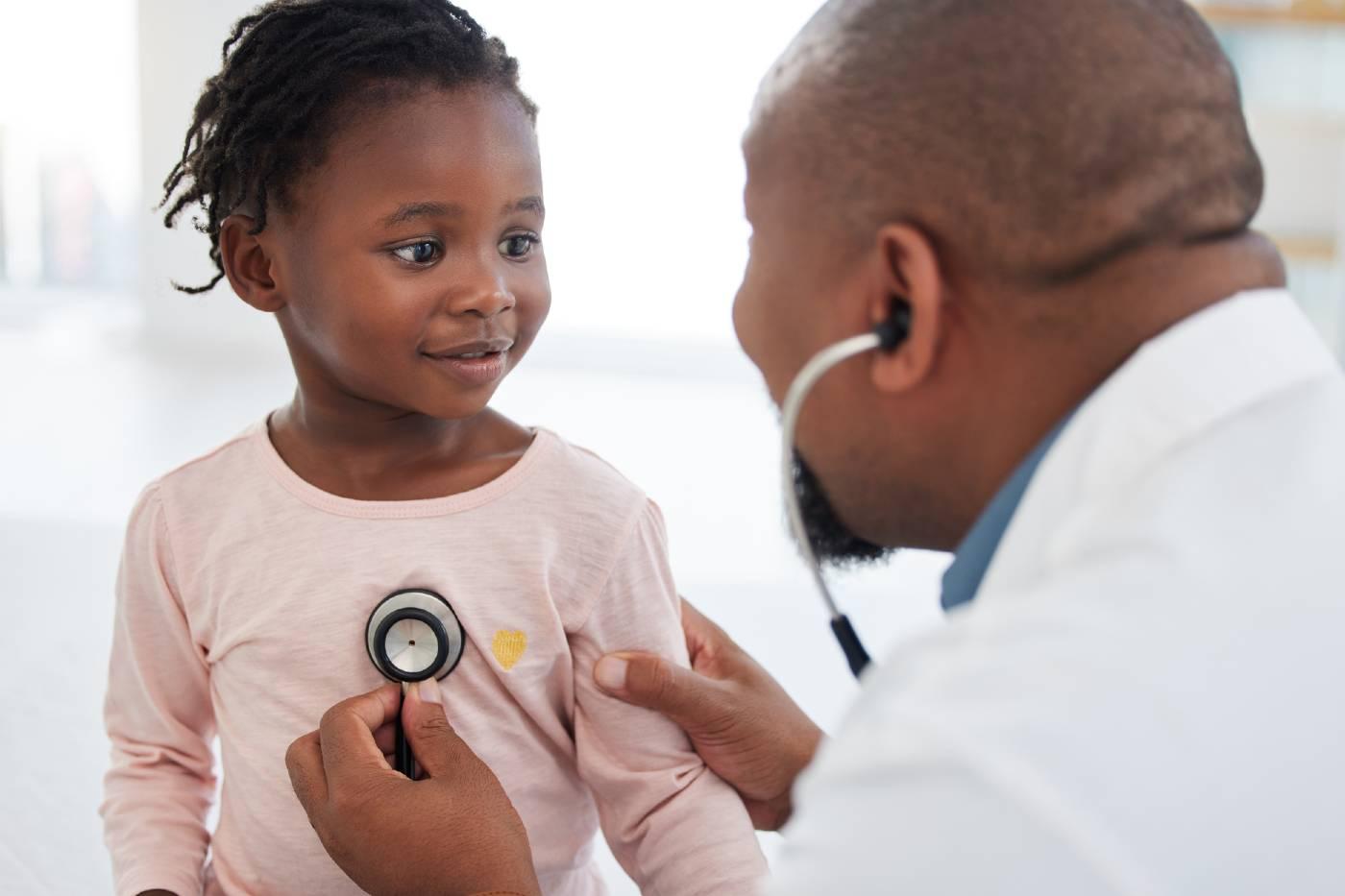
Whether your little one is scheduled for their annual well-child visit or they’ve come down with a mysterious stomach bug, going to the doctor is a must for all kids. But that doesn’t mean it’s always easy. There’s the long and boring wait that can be so tough on young ones. Then, a stranger will peer into their ears (so weird!) and—worst of all—there’s the looming possibility of a shot! In fact, among the 50% of tots who have doctor-visit fear, 66% of toddlers and 89% of 4- to 5-year-olds are worried about needles. Beyond shots, a 2021 report found that 45% little ones are also worried that going to the doctor will otherwise hurt. And another 21% are simply scared of the unknown. The good news? With a little preparation and some on-the-spot know-how you can make your child’s visit to the doctor easier than ever.
Going to the doctor isn’t just about getting weighed, measured, and receiving the flu shot. Doctor visits are also about children—even young ones—learning, practicing, and developing communication and decision-making skills, notes a Swiss report. After all, increased child participation in doc visits have been shown to possibly reduce complications, improve a kiddo’s self-advocacy skills, and improve their overall satisfaction with healthcare…all super-important! With that, here are strategies to help get your toddler or preschooler comfortable at the doctor’s office to ensure a long and healthy relationship with, well, staying healthy!
Start ’em young.
Surveys and studies tend to look at toddler, preschool-age, and big kid doctor’s appointment experiences, which means babies are often left out of the picture. And that’s too bad, because your baby’s experience at the doctor’s office helps to set the stage for all future doctor visits. To get off on the right foot, it’s key to remember that during your little one’s first year, they learn to develop trust through their five senses: taste, smell, seeing, hearing, and touch. Here’s how to tap those senses and make doctor visits in infancy better:
-
Come prepared. Even if you’re anticipating a quick in-and-out doctor’s appointment, come ready for anything! That means, bring a fully stocked diaper bag, including an extra set of clothes, a full bottle (if bottle-feeding), a pacifier, an on-the-go white noise machine, and a fave blanket to ensure your baby is warm and comfortable between screenings. - Use the 5 S’s: Research shows that Dr. Harvey Karp’s famed 5 S’s—swaddling, side/stomach position, shushing, swinging, and sucking—can quickly soothe babies after an immunization. But even if no shots are in the cards, soothing your newborn with this proven technique activates your little one’s inborn calming reflex, which is like nature’s “off switch” for fussing and distress.
- Consider breastfeeding. Nursing can be especially helpful during or after stressful parts of the doctor’s visit, such as taking vitals, having a blood draw, or getting a vaccine.
- Distract your baby. Your baby loves hearing your voice and seeing your face, so be sure to lovingly look at your little one during the visit while singing, making silly faces, or playing peek-a-boo.
Play doctor!
Include doctor fun in your child’s dress-up collection, such as a toy medical bag, a kid stethoscope that really works, and their very own white coat…and then spend time playing doctor with them! Take turns using a tongue depressor. Listen to each other’s heartbeat. Tap on your bub’s tummy to feel what’s inside. Talk about how the blood pressure cuff feels like a hug to the arm. When your tot gets to roleplay being the doctor—and the patient—with their dolls, their stuffed animals, and you, they start to feel more and more comfortable with their own pediatrician and doc visits. They also feel more in control and it’s a great opportunity for you to answer any questions—or address any fears—your child might have about seeing the doctor.
Practice “Magic Breathing.”
Experts recommend that you practice relaxing with your child before doctor’s appointments—and one of the best ways to do that is by teaching your little one Magic Breathing, a powerful calm-down technique from Dr. Harvey Karp. In the weeks leading up to your doctor’s appointment, practice this at home several times:
-
Sit in a comfy chair and ask your child to do the same, telling them that you’re going to do some Magic Breathing, “This helps me feel better when I’m anxious.” - Uncross your legs, put your hands in your lap, drop your shoulders, and relax the muscles around your mouth and eyes.
- If you’ve got SNOObie, Dr. Karp’s smart soother and sound machine, toggle to the Magic Breathing tracks that use pulsing light and sound to help you teach your tyke mindful breathing. (Start with the Fast Magic Breathing track and work up to the deeper, slower breathing in the Slow Magic Breathing track.)
- Slowly inhale through your nose (silently count to five) while raising one hand, then exhale through your nose (for another five), letting your hand slowly drop.
- Ask your tot to mimic you, then lead your child through the motions.
Do this frequently leading up to the doctor’s appointment, so once you’re there, you can practice Magic Breathing together if needed.
Preview the experience.
You’ve heard the adage “show don’t tell?” That’s particularly true for toddlers and preschoolers who are visual learners. In the days leading up to your child’s doctor visit, show them pictures or videos of what the office looks like and the types of people they’ll encounter. Experts note that this may decrease their fear of the unknown. At the same time, add some kid-friendly books about physicians—and going to the doctor—to your storytime collection. Some perfect picks include the board books Future Doctor and We’re Going to the Doctor: Preparing For A Check-Up, and for the 2-and-up set Daniel Visits the Doctor, My Doctor and Me ABC, and Going to the Doctor: A Toddler Prep Book.
Talk about the doctor visit…a bit!
Your gut may be telling you to prepare your toddler weeks in advance for their check-up or doctor visit, but experts often note that it’s a better idea to keep it casual and offer a simple explanation the morning of the appointment—or even in the car ride over. (The exception: If your toddler is due for a shot or a potentially unpleasant procedure, you can briefly talk with them a little more in advance.) For preschoolers and young school-age children, consider talking to them about their upcoming appointment a day or so ahead of time. Meanwhile, older school-age kids and adolescents often benefit from getting a doctor’s appointment heads-up several days ahead of time. Here, some what-to-say guidance:
-
If your kiddo is getting a checkup, say something like, “All healthy kids go to the doctor! The doctor is going to check how you’re growing and developing, and make sure your body is healthy. You’ll even get to ask any questions you want about your body and your health.” - If your child is at the doctor for a diagnosis or treatment, say something like, “All people—children, mommies, daddies, aunts, grandpas, everyone—go to the doctor when they’re not feeling well. The doctor will check you to find out how to fix your sickies and help you get better.”
Validate your child’s worries.
If your child expresses worry about their impending visit to the doctor, listen up…without diminishing or dismissing their fears or anxieties. That means, language like “don’t be silly!” and “it’ll be fine!” is 100% off limits. These types of responses don’t make your kiddo feel better. They simply send a message that you’re not interested in hearing how they feel. Instead, validate your child’s feelings with words like, “I understand how you feel. I was super nervous before my last doctor’s appointment, too. But I’m so happy I went because the doctor is helping me stay healthy.” At the same time, show your kiddo healthy ways to handle their feelings. (See: Magic Breathing, above.)
Schedule smart.
When you’re scheduling your child’s doctor appointment, unless it’s an emergency, don’t simply say yes to the first available slot. Instead, book your child’s visit when you know they’ll be in the best possible mood. That means, use their nap schedule and feeding schedule as your guide. A well-rested and recently fed child will be far better patient than one who’s tired and hungry!
Bring a lovey.
Snacks, a favorite storybook, your kiddo’s beloved toy garbage truck are all great distractions to have in your proverbial back pocket…but don’t forget their extra-special comfort item: You tot’s lovey. A lovey is any object that your child connects with and finds soothing, so it could be their beloved white noise SNOObear, a silky blanket, or even a picture of you! Loveys are especially comforting amid times of stress, like during an illness or a visit to a new doctor. (Find out why toddlers adore their loveys.)
Call ahead.
Before stuffing the diaper bag, strapping your tot into their car seat, and blindly driving to your child’s doctor appointment—call ahead! Making sure your pediatrician is on-schedule before you arrive can help alleviate in-office anxiety. Research in the journal BMC Oral Health found that the longer children had to cool their heels in the waiting room before an appointment, the higher their anxiety rose. While the study was on dental visits, it stands to reason the same principle would carry over to any doctor’s office.
Show up early—but be prepared for a wait.
After you confirm with your child’s pediatrician’s office that they’re on schedule, give yourself enough time to get there, settle in, and fill out any lingering paperwork. Rushing, after all, amps anxiety. But also, explain to your tot beforehand that most doctor visits include some time in the waiting room. Together, pack a few items like small toys, picture books, and snacks to help pass the time. And if a packed waiting room or a longer-than-anticipated wait is stressing you or your child out, feel free to get up and move around. Just let the receptionist know you’ll be walking the halls or out front—and ask them to call or text when they’re ready for you. (To help your child learn to wait, start teaching patience-stretching technique today!)
Be smart about shots.
Roughly 1 in 4 parents have told their child there wouldn’t be any shots at their doctor’s appointment—even if they had no idea if a shot was planned or not. This is not a good idea! Experts agree that it’s far better to be honest about what you know and what you don’t. You can say, “I’m not sure, but we can ask the doctor as soon as we get there.” Or “Yes, you’ll be getting a shot. While no one—even grownups—likes getting shots, they’re a big part of what keeps us healthy, so we all need them sometimes.” Being straightforward helps to build trust between you and your kiddo. Plus, it keeps your child from feeling blindsided. Other shot tips, include:
-
Use simple language. Share with your child the reason they’re getting a vaccine, what it will feel like, (“It’ll feel like a poke or a little pinch”) and what’s expected (“You’ll need to hold still, but you can sit in my lap the whole time” ). - Find your child’s comfort position. For babies, being swaddled in your arms is the ultimate comfort position. (Learn how to swaddle your little one.) Older infants like to be on your lap with their back to your chest while you snuggle them. Meanwhile, toddlers often prefer to be in the chest-to-chest position, while preschoolers may opt for a back-to-chest or a side-sitting position on your lap. No matter which position your child likes best, hugging your child is always a good move.
- Offer a gentle reminder. The fear of getting a shot is usually way worse than getting one. Without dismissing your child’s fears, try to put their worry into perspective: “Last time you got a shot it was over so fast, remember?”
- Start with the shot. Check to see if it’s possible for your child to receive their shot at the start of the doctor’s visit. Often, the anticipation can add to your child’s anxiety.
- Praise your child. Once the shot is over and the Band-Aid is on, dole out the positive reinforcement: “I’m so proud of you. You were scared, but you did it anyway! You were so brave!” (PS: If your kiddo didn’t cry, don’t mention it. You never want to give the impression that crying is a bad thing.)
For more advice on helping your toddler deal with shots, check out Dr. Harvey Karp’s expert advice.
Don’t apologize!
Never ever say you’re sorry for bringing your tot to the doctor! No, “I’m sorry the needle hurts.” No, “I’m sorry you’re scared.” If you apologize, you inadvertently send the message that you’re doing something wrong by bringing your child to the doctor and/or getting them vaccinated. Moreover, research shows that apologizing is associated with an uptick in a kiddo’s stress over needles. A better idea: Stay calm, positive, and matter of fact. “Visiting the doctor helps to keep us healthy.”
Reward your child.
Build a special reward into your doctor-visit plans, so that your child will start to connect that fun thing with doctor’s appointments…which will help make your bub more agreeable about going to the doctor in the future. The key is to never make the reward a negotiating tool (“If you go to the doctor, I’ll buy you X”) and to never hinge a reward on behavior. Instead, after the doctor visit is done, simply say, “Let’s celebrate your bravery and cooperation,” and take your kiddo out for ice cream sundaes, run around at the extra-cool playground nearby, visit a friend who lives in the same neighborhood as your pediatrician's office, or anything else that you know will make your sweetie smile.
Gossip about your kiddo.
Once you’ve got that doctor visit under your belt, continue to make it a positive experience at home. This’ll help grease the wheels for an even smoother doctor’s office visit next time. To do that, engage in some good old-fashioned gossip. With your tot nearby, whisper some praise about them to someone else—even a teddy bear or pet. (Don’t wink or look at your child when you do this. Gossiping only works when your child thinks you don’t want to be overheard.) Cup your hand alongside your mouth and, in a loud whisper, say something like, “Psst…Jack did such a great job at the doctor today. He was such a good listener and so brave!” Later, repeat the same compliment to someone else, perhaps adding something like, “I can’t believe how big Jack is getting and how healthy and smart he is!” Your sweet pea will be so happy and think, “Wow, this must be true, because I’m hearing it a lot lately!” Gossiping works best with tots who are at least 15 to 18 months old. (Learn more about encouraging good behavior with gossiping.)
More doctor-office insights:
- Questions to Ask While Interviewing Pediatricians
- Make Baby’s First Dental Visit Easier
- Vaccine Guide and Baby Immunization Schedule
- Fever in Babies: When to Call the Doctor
***
REFERENCES
- S. Mott Children’s Hospital, National Poll on Children’s Health: Mott Poll Report
- Children’s Perspectives on Outpatient Physician Visits: Capturing a Missing Voice in Patient-Centered Care. Children (Basel). January 2021
- Nationwide Children’s: Helping Children Cope During Visits to the Doctor
- Effective Analgesia Using Physical Interventions for Infant Immunizations. May 2012
- A pilot study of observed physician-parent-child communication and child satisfaction in a gastroenterology clinic. Patient Prefer Adherence. July 2018
- Children’s Wisconsin: Tips for preparing a child for a doctor visit
- The Nemours Foundation, KidsHealth: Preparing Your Child for Visits to the Doctor
- Children’s Minnesota: Helping Children Cope with Medical Procedures
- Children’s Hospital of Philadelphia (CHOP): Prepare Your Child for a Visit to the Doctor
- CHOP: When Your Child Is Afraid of the Doctor
- The effect of the waiting room’s environment on level of anxiety experienced by children prior to dental treatment: a case control study. BMC Oral Health. December 2019
- Michigan Health: 6 Simple Ways to Ease Children’s Fears at the Doctor
- Child Mind Institute: Helping Kids Who Are Scared of Going to the Doctor
- CHOP: Comfort Positioning During Procedures
- The Association Between Parent’s and Healthcare Professional’s Behavior and Children’s Coping and Distress During Venepuncture. Journal of Pediatric Psychology. October 2010
Disclaimer: The information on our site is NOT medical advice for any specific person or condition. It is only meant as general information. If you have any medical questions and concerns about your child or yourself, please contact your health provider.
SHARE THIS ARTICLE
MOST LOVED
Sleepytime Sidekicks






